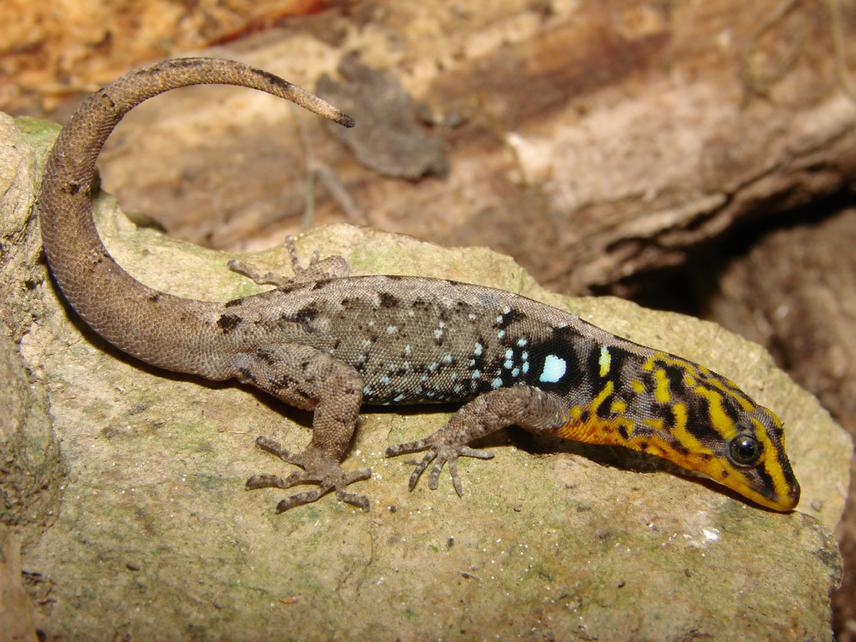Juan Carlos Jordán Arizmendi
This project is aimed to gather much-needed ecological data on the reptile community inside Cerros de Amotape National Park; develop and implement a monitoring, protocol; train park rangers and students in scientific research and monitoring; and will make technical, scientific, and educational material available to park rangers, local people and scientific community.

Gonatodes caudiscutatus.
Amphibian and reptile declines are documented from many places. In Peru, dramatic amphibian declines have been reported from the tropical Andes; however, similar effects on reptiles have not been assessed. Peruvian tropical dry forests are endangered by cattle grazing, agricultural expansion, urbanization and deforestation for coal production. In the Ecuador, these forests have been heavily modified or have disappeared due to the same pressures. Cerros de Amotape National Park faces these same threats, endangering the unique flora and fauna of this natural protected area. The lack of scientific and technical methodologies for ecological research and monitoring programs, as well as limited opportunities for personnel training, represent a bottle-neck for the Park´s management.
Moreover, the lack of reliable information on wildlife hinders efforts aimed at securing funds for in situ conservation of reptiles. Finally, the Park´s Master Plan has identified biological monitoring and support for scientific research, as priorities for the management of natural populations. This project will involve the development and implementation of a long-term monitoring protocol for reptiles in Cerros de Amotape National Park, a training program for park rangers and local people focused on reptiles monitoring, training for young scientists and the dissemination of results from monitoring and scientific studies to local people, Park staff and the scientific community.